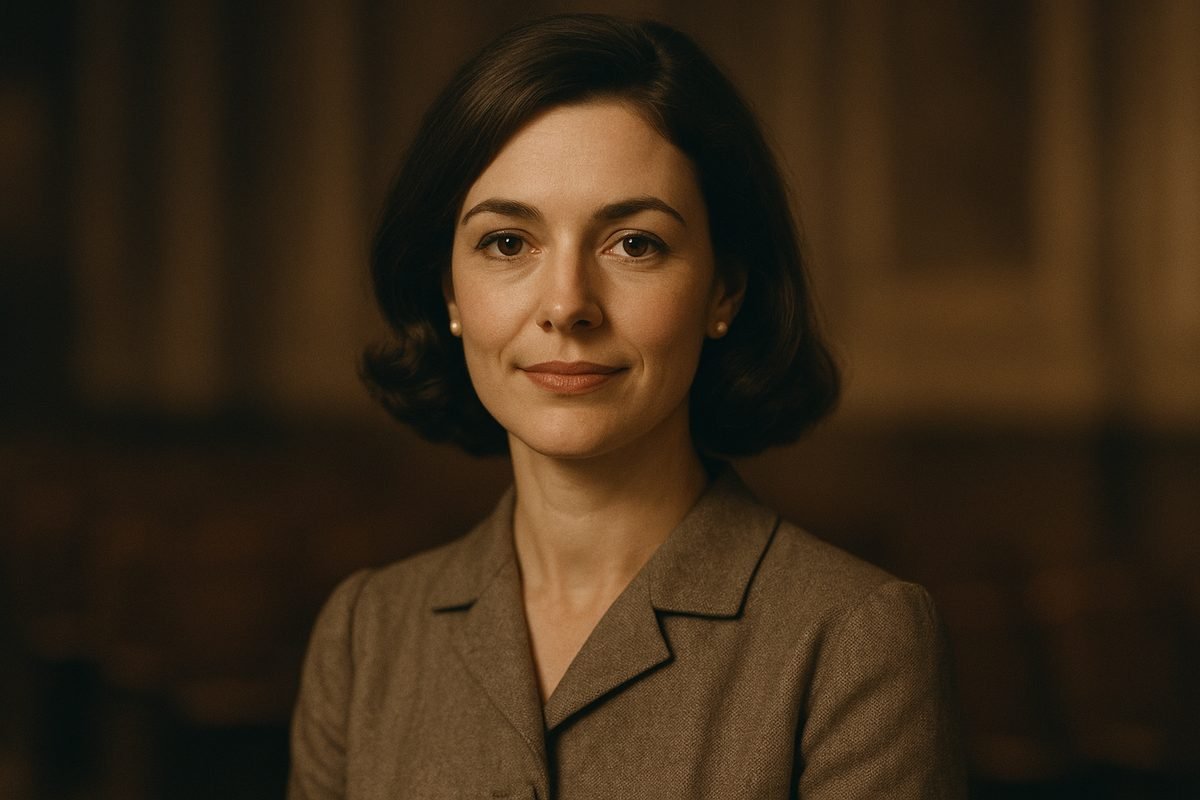The Quiet Strength of Jean Taynton: The Educator Who Shaped John Lithgow’s Early Life

In the narrative of Hollywood, some stories unfold in the quiet spaces behind the spotlight. The story of Jean Taynton is one such tale, often mentioned as a footnote in the biography of her famous ex-husband, actor John Lithgow. However, her life was a compelling journey of intellect, resilience, and quiet dignity that stands on its own.
Jean Taynton was far more than a celebrity’s wife; she was an accomplished educator and the steady anchor in the turbulent early years of a rising star. Her story is not one of reflected glory, but of personal strength and the profound impact of a life lived with purpose, largely away from the public gaze.
Beyond the Shadow of Fame
Long before her life intersected with Hollywood, Jean Taynton was carving her own path. She was a woman of intellect and purpose, dedicating her career to education. Her story offers a powerful reminder that significance is not always measured in headlines or public recognition.
It is in understanding her journey—as a teacher, a partner, and a mother—that a more complete picture emerges. This is the story of the woman who provided the foundation upon which a celebrated career was built, and who, after it all, chose a life of quiet dignity.
A Fateful Meeting on a Summer Stage
From Oberlin College to the Highfield Theater
In the 1960s, Jean Taynton was a bright and dedicated schoolteacher living in Cambridge, Massachusetts. A graduate of the prestigious Oberlin College, she spent her summers indulging a passion for the stage at the Highfield Theater, often taking on comedic roles that showcased a different side of her personality.
It was in this creative and vibrant atmosphere that her life would take an unexpected turn. She was known for her sharp mind and grounded nature, a stark contrast to the world of performance she enjoyed in her time off.
An Onstage Romance Becomes Real
During one of these summers, she was cast opposite a tall, ambitious young actor named John Lithgow in the Gilbert and Sullivan opera “Patience.” On stage, they played lovers. The chemistry they shared under the theater lights soon blossomed into a real-life romance.
Despite being six years his senior and possessing a more practical outlook on life, Jean was captivated by the young actor’s charm. As Lithgow would later write in his memoir, she was a compelling “blend of effervescence and gravitas, of girlishness and maturity.”
Building a Life Together
A London Vow and a Shared Dream
Their connection deepened, and in 1966, Jean Taynton and John Lithgow were married in a small ceremony in Philadelphia. Soon after, they embarked on a life-changing adventure, moving to London so he could pursue a formal drama education.
Their time in London was defined by a shared passion for the arts. They spent their evenings immersing themselves in the city’s vibrant theater scene, a formative experience for the aspiring actor. But this dream was sustained by Jean’s unwavering support.
The Teacher Who Sustained the Household
While John studied, Jean worked as a teacher in London’s schools, becoming the primary breadwinner. Her steady income provided the financial stability that allowed him to chase his ambitions without compromise. She was the quiet force that kept their household running.
Upon returning to the United States, she continued her impactful career, making a name for herself at The World Blind Centre by successfully teaching dyslexic children to read. Her professional life was a testament to her dedication and skill as an educator.
The Strains of a Rising Star
A Heartbreaking Loss and a New Joy
The couple’s journey was not without profound hardship. They faced a devastating tragedy when their first child, born prematurely, passed away after only a few hours. Through this immense grief, Jean’s strength remained a constant, steadying force.
In 1972, they welcomed a son, Ian Lithgow, who brought new joy and responsibility into their lives. With a child to care for, Jean put her own career on hold, further dedicating herself to her family as John’s acting opportunities began to grow.
Fame, Infidelity, and a Painful Confession
As the 1970s progressed, John Lithgow’s career began to skyrocket. However, the increasing demands of fame and time apart placed a significant strain on their marriage. The foundation they had built began to show cracks.
The breaking point came when Lithgow, working on a Broadway production, had an affair with actress Liv Ullmann. He confessed his infidelity to Jean when she visited him in Toronto with their young son. It was a devastating blow that their marriage could not survive.
A Life Reclaimed in Privacy
Choosing Dignity Over Drama
In 1980, after fourteen years of marriage, Jean Taynton and John Lithgow divorced. In the wake of this painful and public betrayal, Jean made a conscious and powerful choice: she retreated from the spotlight. She chose to handle her new reality with grace and dignity, refusing to engage in public drama.
Her decision to step away from the Hollywood-adjacent life she had known was an act of self-preservation and a reclamation of her own identity. She returned to the quiet, private life she had always preferred, focusing on what mattered most to her.
A Mother’s Enduring Influence
Jean dedicated herself to raising their son, Ian, ensuring he was shielded from the fallout of the divorce. She remained a powerful and positive influence in his life, prioritizing his well-being above all else and ensuring he maintained a strong relationship with his father.
Her guidance and support clearly had a lasting impact. Ian Lithgow grew up to not only follow in his father’s footsteps as a successful actor but also to become a licensed therapist specializing in marriage and family counseling—a path that speaks volumes about the emotional intelligence fostered in him.
The Quiet Legacy of Jean Taynton
Jean Taynton’s story is a powerful testament to a life lived on one’s own terms. She never wrote a tell-all book or gave sensational interviews. Instead, she built a life of purpose and meaning away from the glare of public scrutiny.
Her legacy is not defined by fame, but by her quiet strength, her dedication as an educator, and her resilience in the face of personal hardship. She was the unseen foundation for a great talent, but more importantly, she was a woman of substance who navigated life with integrity and grace, leaving a lasting mark on the lives she touched.
Last modified: November 8, 2025

